Choosing the right platform to host your website can feel overwhelming, especially with so many options and technical jargon thrown around. While marketing materials often highlight speed, uptime, and scalability, there are critical details many business owners miss until it’s too late. This article will uncover the lesser-known truths about website hosting that every small business owner should know.
Why Website Hosting Matters More Than You Think
Your website hosting service does more than just store your files. It directly impacts your site’s performance, security, and even search engine rankings. A slow or insecure website can frustrate customers and hurt your reputation. Worse, an unreliable hosting plan can lead to extended downtime, costing you potential customers and revenue.
For instance, think of a bakery that spends months building an online store to sell custom cakes. If their hosting service causes downtime on weekends—their busiest shopping period—they could lose thousands of dollars in lost sales without realizing the root of the issue.
Understanding the nuances of hosting helps you avoid these pains and make better choices for your business.
Shared Hosting Isn’t Always a Money Saver
Low-cost shared hosting plans often appeal to small business owners looking to save money. However, there’s a catch. With shared hosting, your website shares server resources—processing power, memory, and storage—with dozens or even hundreds of other sites. If one of those sites experiences a traffic surge or technical problem, it can slow down or crash your website.
For example, imagine you run a small interior design firm. Your lovely portfolio website suddenly becomes sluggish the night before a big client presentation. It turns out one of the sites on your shared server is hosting a flash sale that overloaded the system. Shared hosting might seem affordable at first, but the costs for downtime or slow performance can add up in unexpected ways.
Practical Tip:
If shared hosting is your only option due to budget constraints, choose a reputable provider that actively limits the number of websites on each server. Ask about their traffic management approach before committing.
Bandwidth and Storage Are Not Always Unlimited
Many hosting companies advertise “unlimited bandwidth” and “unlimited storage” on their pricing pages, but these claims often come with fine print. Bandwidth refers to the amount of data your site can transfer, while storage covers the space available for files like images or videos. “Unlimited” rarely means infinite. Providers often impose restrictions if your usage exceeds what they consider “normal behavior.”
For instance, an online boutique owner may upload hundreds of high-quality product photos to a content-heavy website. If their hosting provider has limitations disguised under an unlimited plan, the boutique might face throttled speeds or additional charges when traffic increases.
Practical Tip:
Ask hosting providers for a clear explanation of their acceptable use policies. If your site relies heavily on videos or high-resolution images, look for a plan that outlines sufficient resources to handle large media files.
Customer Support Could Make or Break Your Business
Customer support quality is often overlooked when choosing a hosting provider. Unfortunately, many business owners realize too late how crucial 24/7 support can be. A single technical issue—like a hacked site or server misconfiguration—can render your site inaccessible. Without quick access to help, you might miss out on valuable leads or online purchases.
Consider the experience of one small business owner who recently launched a fitness coaching website. During their most important webinar of the year, their site crashed. The hosting provider offered support only via email with a slow response time. By the time they received assistance, the webinar opportunity had passed.
Practical Tip:
Before signing up, test out the hosting provider’s customer support by submitting questions through email, chat, or phone. Choose a host with live support available when you need it most.
Security Isn’t Always Guaranteed
Cyberattacks are becoming more common, and small business websites are prime targets. Weak hosting security can leave your website vulnerable to hacks, malware, and data breaches. While hosting providers often tout standard security measures like firewalls and backups, “standard” may not be enough if your business handles customer data.
For example, let’s say a boutique shop collects customer information for a newsletter. If the hosting provider fails to offer robust security measures, an attacker could exploit vulnerabilities to steal the data. Fixing a hacked site costs money, damages customer trust, and could lead to fines depending on data protection laws.
Practical Tip:
Opt for a hosting plan with advanced security features, such as SSL certificates, malware scanning, and automatic backups. Regularly update your passwords and keep plugins/themes up to date.
Scalability Should Be a Priority
Small businesses often choose hosting plans based on current needs, without considering growth. A plan that works for a small website today could struggle to accommodate higher traffic as your business expands.
Take the case of a food blog that starts gaining attention after partnering with high-profile brands. Suddenly, increased visitor traffic causes the site to crash because the hosting plan wasn’t built for scaling.
Practical Tip:
Look for hosting providers that offer easy upgrades to more robust plans when your traffic grows. This ensures you can focus on scaling your business instead of worrying about technical limitations.
Key Takeaways for Small Business Owners:
- Avoid overly cheap hosting plans. Consider factors like server resource sharing, traffic management, and long-term costs.
- Don’t trust “unlimited” claims blindly. Clarify acceptable usage limits upfront to avoid surprises.
- Invest in a host with reliable, round-the-clock support to resolve issues quickly.
- Make sure the hosting plan includes strong security features to protect your business and customer data.
- Think beyond your current needs and choose a host that supports growth.
Website hosting is more than a technical service. It is the backbone of your online presence. By understanding these hidden aspects, you’ll be better equipped to make a choice that supports your business both now and in the future.
MoDuet can help you make sense of website hosting so you can focus on growing your business. Whether you’re creating your first website or looking to enhance an existing one, we’re here to guide you every step of the way. Contact us today to learn more about optimizing your online presence!
We Want To Talk To You About Your Marketing Goals.
Let’s Supercharge Your Online Growth!












